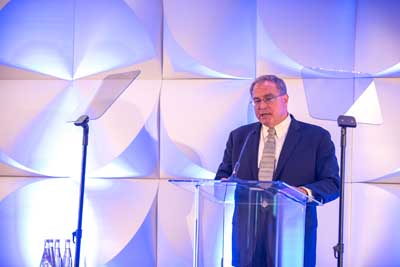The results of a survey carried out on behalf of the Foundation for a Smoke-free World has demonstrated that support for quit attempts can be better targeted by understanding the unique experiences of individual smokers.
The Foundation yesterday published findings from a global survey aimed at better understanding smokers, their experiences, and the challenges they face when they try to quit smoking. The survey highlights also their awareness regarding the harm caused by smoking and how their perceptions of cigarettes, alternative products and nicotine influence their motivation to move away from smoking.
The Foundation said the data would be used to shape the development of research to determine the best solutions to accelerate the end of smoking across diverse cultures and economic conditions.
The Foundation describes itself as an independent, private foundation formed and operated free from the control or influence of any third party. Philip Morris International provided the initial funding to the Foundation, which makes grants and supports medical, agricultural and scientific research to end smoking and its health effects, and to address the impact of reduced worldwide demand for tobacco.
The 2018 State of Smoking Survey included 17,421 current smokers, ex-smokers, and non-smokers from 13 countries: Brazil, France, Greece, India, Israel, Japan, Lebanon, Malawi, New Zealand, Russia, South Africa, the UK and the US. In parallel, a series of qualitative focus groups were carried out in seven countries, France, Greece, India, New Zealand, South Africa, the UK and the US, to give additional context to the quantitative results. The survey was conducted by Kantar Public, an integrated consulting and research agency, which was engaged by the Foundation.
In a press note, the Foundation said the primary findings were:
- Smoking isn’t an isolated habit. Smokers consider it deeply integrated with their basic pleasures of life, such as eating, drinking, and socializing. Currently implemented cessation methods fail to take these into account, resulting in continued smoking.
- Smokers know that smoking is harmful to their health, and many consider themselves in poorer health than non-smokers, yet they do not actively engage with their healthcare providers or discuss effective cessation or reduced-harm solutions with them. The healthcare system needs to better engage with smokers, and medical providers need more effective tools to help smokers quit.
- There is confusion among smokers about the relative harms of smoking and less harmful alternatives. While people ‘smoke for the nicotine, but die from the tar,’ there is still considerable misperception about the risks of nicotine. This impacts their motivation to quit or try reduced risk alternative products.
“I hope this survey will jolt many of the world’s one billion smokers into action to stop smoking, spark a meaningful discussion on the deeply complex reasons so many people continue to smoke, and make clear the urgent need to develop more effective communications and interventions to help smokers quit or substantially reduce their risks,” said Dr. Derek Yach (pictured), president of the Foundation. “By better understanding key drivers behind why people start smoking, barriers to quitting, and motivations to stop, we can help reduce the negative health consequences for many who are trapped in the cycle of addiction to combustible tobacco products.
“The data demonstrates that by better understanding the unique experiences and struggles of the individual smoker, we can better support each individual’s quit journey. In this age of personalized medicine, it is only logical that we should stop treating the world’s smokers as one homogeneous group and start developing and embracing a wide range of solutions that allow individual smokers to select the method that works best for his or her situation and, more importantly, reduce the harm, disease, and death that is caused by smoking.”
Further findings from this study are available at:
https://www.smokefreeworld.org/sites/default/files/uploads/derek-yach-press-conference-presentation.pdf .

